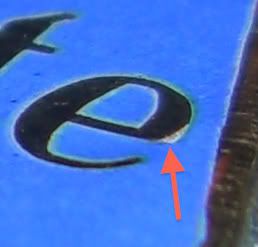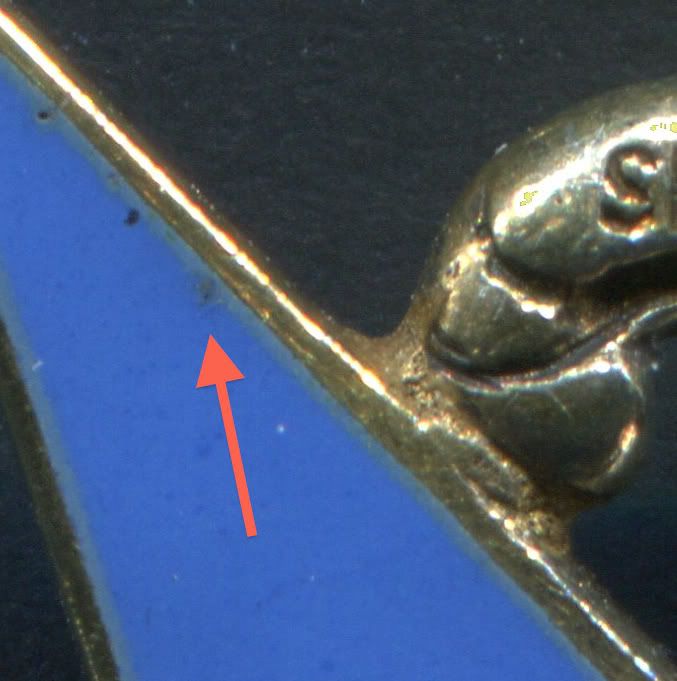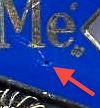HI I came across this one on ebay item number 180659176343. It is listed as a original 1916 plm and has a paper from forman piccadilly of london which is dated 1982 and states it is original plm. It looks like the dead eye fake which has been talked about here with no one able to decide if real or not . I ask the seller for close up pictures of the cross front and back but go no reply. Also as for a close up of the paper work being summitted . I like to know what you think about this cross and forman . I did see the seller listed the item from a cell phone so it might be a scam .The cross looks very nice in the picture they have listed.
Announcement
Collapse
No announcement yet.
plm DEAD EYE FAKE CERTIFIED BY FORMAN
Collapse
X
-
RULE # 1 of e-bay ... regardless of whether the item maybe good or bad ... if they don;t answer questions or supply pictures you want ... STAY FAR AWAY .....Originally posted by cobra-2001 View Post........ I ask the seller for close up pictures of the cross front and back but go no reply. .....
Comment
-
Note that the COA refers to the cross as part of an auction lot. I would be very suspicious this is a scam, using a picture from an old auction catalog, and that the seller does not possess the item in question. Note that all the "close-ups" are just detail shots frem the same picture of the cross with the certificate behind it. The seller's short history suggests no prior connection to militaria, either (though some pretty expensive Nantucket baskets for sale!)
Will be amazed if you get anything from the seller!
Comment
-
Hey Marshall, in fairness, while the attestation from Forman of Piccadilly, Ltd., would put this "circa 1916," that date was assumption based on it being hollow gold alone, I'd wager. if it is "real" in any sense, the dating should be more akin to the later 1930s. It would have received considerably less chance for wear and tear than a pre-1918 Godet!
They did post some more pics, too...guess I gotta be amazed. Maybe a Nantucket basket would look good in my place...
Comment
-
Hey Jim - out of interest - i know you must (like myself) have a reasonable collection of 'dead-eye' photos on file - do you posses a photo of one with ANY enamel damage whatsoever, and if not, does this concern you?Originally posted by Zepenthusiast View Post...It would have received considerably less chance for wear and tear than a pre-1918 Godet...
I'll assume in advance that it doesn't concern you , so why not?
, so why not?
Marshall
Comment
-
If you will allow me to count my solid silver version as among the number (that is, not just the hollow gold versions being in question)--and i am guessing you will! --it has at least three small chips/spalls I can readily think of. Here is an example:
--it has at least three small chips/spalls I can readily think of. Here is an example:

Here is a little one from the scan of the other cross I examined, too:

And there is even this guy, from the pie slice you posted earlier:

These are all pretty small (and the others are similarly so), but they are far from flawless on close inspection.
I can't speak for the gold versions, since I have never handled one, but looking through the classic Godets in Prussian Blue, most are pretty close to flawless looking (one glaring exception from 1916) and at least one seems to have held its enamel well despite a blow which outright bent the involved tip. I would submit Godet did use a better enamel (or applied it better) than their friends at Wagner, at least late in the war! (von Mackensen's hollow version still looks pretty darn good--better Wagner recipe then.)Last edited by Zepenthusiast; 04-28-2011, 08:38 AM.
Comment
-
-
Well, at least we know this hollow gold version was around 29 years ago. Has anyone ever done a time line on the discovery of these. My hollow gold version was obtained in 1975.
Bob HritzIn the land of the blind, the one eyed man is king.
Duct tape can't fix stupid, but it can muffle the sound.
Comment
-
Originally posted by Bob Hritz View PostWell, at least we know this hollow gold version was around 29 years ago. Has anyone ever done a time line on the discovery of these. My hollow gold version was obtained in 1975.
Bob Hritz
Bob,
Using published literature and when the research was done, pushes the date for these back a bit further.
Bill Hammelman published his three part series on the Pour le Merite circa 1970. In volume 3, he has a photo of a hollow gold "GODET".
I spoke with Bill about this piece and asked him about it. He said the research for the book was done in the mid-1960's. The PlM seen in his book was in a private collection, along with an Urkunde attributed to General Arnauld Lequis. The two items are now in the possession of Jorge Nimmergut who pictures both of them in his five volume series on Imperial/German awards.
Bob, et al, other than the Goering attributed piece, and the one in the Goering collection, there are two others with varying degrees of provenance attached to them. One belongs to a former President of OMSA (also with an Urkunde). The other one is in a private collection, and part of a grouping with a engraved and named WWII era honor sword that was acquired from an American officer from the German who was carrying it (and other items) on his person, in 1945. The grouping belonged to the man who was not and never was a collector and personally "liberated" the PlM, Honor Sword and other items until the 1990's.
I'm waiting for one more documented piece (or at least five documented or semi-documented examples) before trying to present a case for these being genuine 1930's era piece.
Comment
Users Viewing this Thread
Collapse
There is currently 1 user online. 0 members and 1 guests.
Most users ever online was 10,032 at 08:13 PM on 09-28-2024.

Comment